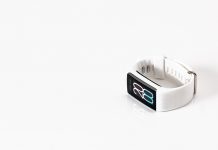
Although I certainly agree with you that testimonials are no way to practice science or choose a diet, I’d like to share with you my experiences. Last year, after severely injuring my back, I finally decided to get help to lose weight. I am a 5’4″34-year-old female whose weight began ballooning at the age of 20 with a simultaneous loss in menstrual activity. The number of obese women in my family had convinced me that genetics were the cause (they surely are) and that nothing would ever work. I was eventually diagnosed with Polycystic Ovarian Disease, told to lose weight and given the pill.
Nothing ever worked. I finally stopped all attempts to diet in 1989 after a month at Weight Watchers produced no weight loss and accusations of cheating (“You can’t expect to lose, honey, if you don’t stick to the diet.”) Not only had I not cheated, I carefully and meticulously weighed every bite to avoid errors. I walked a half-hour every day as well. I was humiliated, sick and frustrated. I checked the diet against a calorie counter and discovered the diet only had 800 calories a day! In 1995, I reached my top weight of 236 pounds and felt terrible.
After my injury last year, I consulted a reproductive endocrinologist (She is both a gynecologist and endocrinologist) to get a handle on my problem. After an examination and a few tests, she told me I am hypoglycemic and have elevated triglycerides and cholesterol. I was shocked, as my diet was high in complex carbohydrates, moderate in fat and alcohol-free. She also gave me articles from the New England Journal of Medicine that explain the recent research that Polycystic disease is a symptom of hyperinsulinemia, which is, of course, also the cause of hypoglycemia.
I’m reasonably sure that I am a reactive, rather than a true hypoglycemic. This was last September. I have read everything I can get my hands on, both in print and on the Internet. I am now sure that medical science really does not understand enough about how different body’s process food since no two scientists or doctors can agree. I decided to follow my own philosophy of “moderation is the key.” After following the hypoglycemia diet (protein with every bite of carbohydrates, no sugar, and B vitamin supplementation), I realized that a chronic headache problem I’d had since childhood was cured. I used to get up to 7 headaches a week. My menstrual period returned; I had been taken off the pill for later testing and sinus problems had decreased 80% to 90%.
I also tried a carbohydrate-restricted diet called “The Carbohydrate Addict’s Diet” by Doctors Heller. After the holidays were over, I noticed that only while on the CAD diet had any weight been lost. Since I had only tested that diet for a month, I decided to start it with the new year. In case you are not familiar with this diet, it is similar to Atkin’s except that you do eat complex carbohydrates with one meal a day and that meal must be completed within an hour. I believe the purpose is to avoid triggering an insulin imbalance. I don’t know how many grams of carbohydrates I am getting per day, but I don’t think I am in ketosis. I do not follow the diet quite as strictly as is written since I have four to six ounces of orange juice every morning and about two glasses of milk during the day.
The results so far have been incredible. I am loosing about one pound per week. I feel much more energetic and can climb my stairs without huffing and puffing (better oxygen uptake?). The most important news for me came last week when the endocrinologist re-tested me, including an examination of my ovaries and told me that I have reversed my cystic disease. All the hormonal and lipid blood levels have normalized as well. I have taken no drugs of any kind. The only significant change in my diet from where it was last summer is the complete elimination of sugar, which I did not eat much of in the first place and the reduction (not elimination) in potato, bread and rice consumption. I’ve always eaten more than the recommended quantity of vegetables.
At this point, I am very comfortable eating three times a day, two restricted meals and one unrestricted meal. I had started on six tiny meals a day, which worked well initially. My appetite seems to be somewhat smaller from where it was before. I do not count or control calories at all. I select low-fat meat as much as possible and am eating as many soy products as I can for an alternate protein source. No one will ever convince me that this low carbohydrate diet is dangerous or wrong for me. I don’t necessarily believe it is the only diet for all people.
I hope that as a few more pounds are lost I can begin exercise to overcome the back problem and strengthen my cardiovascular health. I am only just now finding it possible to do the back exercises prescribed by my chiropractor.
For the first time since early adulthood, I am contemplating the possibility of pregnancy.
I’d be willing to bet that the carbohydrate recommendations for people with insulin problems will be revised downward again, maybe to 30% or 40%. I don’t think any diet that completely eliminates complex carbohydrates can logically be healthy, extremes seldom are.
I have the same opinion of super low-fat diets. People are starting to notice my weight loss and I feel better than I have in 14 years. I have only lost 15 lb., so I have a long way and a long time to go.
I do believe my story is significant because of the effect on fertility issues. I wonder how many of the overweight women with Polycystic ovaries (half are not overweight) would benefit from the same diet I am on. I now believe that overweight is a symptom, not the disease and only treatment of the underlying disease will ever work.
It’s hard to oppose something that shows results i.e. weight loss and reduction of ovarian cysts. I hope that this diet plan you have devised meets your weight and pregnancy goals long term. I am concerned about very-low-calorie diets and how those calories are divided up (40% carbohydrate, 30% fat and 30% protein), especially if you eliminate whole groups of food or eliminate nutrients like carbohydrate. Your higher protein intake may be responsible for your drop in food intake. The bottom line is, weight loss occurs when you eat fewer calories than you expend in your daily activities.
I am not familiar with the carbohydrate addict diet, but your food philosophy of “moderation is the key” seems sound nutritional advice. FYI, if you are in ketosis, your breath might have a fruity smell and your urine would test positive for ketones.
If your goal is pregnancy, your nutritional health 2 years before becoming pregnant is most important. It would be impossible to achieve nutritional health by eating a balanced diet on less than 1600 calories per day. I would highly recommend that you take a daily multivitamin that has 100% of the RDA for all vitamins and minerals if your calorie intake is less than 1600 calories per day.
You may not be aware that soy products contain phytoestrogens, which are estrogen-like substances. For women, these compounds help regulate and moderate their own estrogen production. For men, these compounds often help reduce prostate symptoms including an enlarged prostate. Soymilk and tofu are particularly high in phytoestrogens. So you’re including soy products in your diet may have also caused an improvement in your reproductive organs. You may want to search the Internet for more information about phytoestrogens.
Increased insulin resistance of fat cells can also cause Hyperinsulinemia (high insulin in the blood). Many persons who are very overweight have higher insulin levels in their blood because it takes more insulin to get into an abnormally large fat cell and turn blood glucose into energy. Insulin resistance seems to improve and blood insulin levels fall when people lose weight. Did your doctor explore this cause of your hypoglycemia with you? BTW, you are probably less winded from simple exercises like climbing stairs because of your weight loss.
Sugar and sweets also contribute to elevated triglycerides. Did you read my Triglycerides topic? Starches (complex carbohydrates) and sugar have a high glycemic index, which means that they cause a higher jump in blood sugar than other carbohydrate-containing foods like milk, fruit, and vegetables.
Carbohydrate from any source will help maintain blood glucose levels and reduce the loss of protein from the body, which can occur when calories and carbohydrates intake are low. Remember, your body can convert body protein into energy far easier than it can burn body fat.
Here are some body fat facts. Fat cells have a large capacity to increase in size by storing more fat per cell. Also, fat cells increase in number from birth through age 10 and increase at different times in life including pregnancy. If you were an overweight child, you are more likely to be an overweight adult who is more resistant to lose weight because you have more fat cells. Fat cells want to stay at least 40% full and if a fat cell drops below 40%, your body will urge you to eat to replenish the minimum fat required by fat cells. Your body is always prepared for a famine and stores fat for that purpose. So if you have more fat cells, to begin with, your body can store more fat.
Lastly, testimonials do not replace nutrition science in proving what medical nutrition therapy is recommended for most people. There are many diet plans and supplements out there that have not been tested for effectiveness or safety. Therefore, I recommend nutrition therapy that has withstood the rigors of scientific testing. If medical science and recommendations seem confusing, remember the phrase “practicing medicine” as medicine is not perfect yet and there are many undiscovered treatments or remedies that change with new science.


